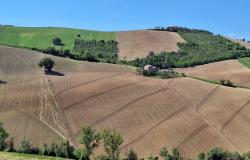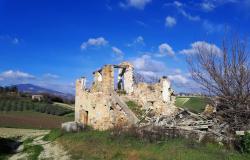You will no doubt get a
Submitted by Fillide on Sat, 08/07/2010 - 18:07In reply to A newbie all over again! by Annec
You will no doubt get a better reply from one of the solicitors who sometimes contribute to this forum, but to answer at least one of your queries, here is 'my take' on this. You say you bought the piece of land potentially in dispute (along with the other properties), so the first point of reference is going to be your 'atto'. The notaio should have (and almost certainly did) require from the seller a statement that the piece of land was in every way 'unencumbered'. Squatter's rights (usucapione) usually require an uninterrupted and unchallenged use of a piece of land (or a building) for twenty years. (There are provisions which reduce this to ten years, though these seem unlikely to be relevant to your situation). The fact that you have "been advantaged" by the cultivator having given you produce is quite important - you have had what could be considered as beneficial use of the land by virtue of these "gifts". Certainly any possible entitlement to 'squatter's rights' has not been altered by the fact that the land changed ownership (ie. when you bought it). The funny thing is, your question is more often posed in the reverse situation! By this I mean that you might have decided to risk buying a piece of land or a building even knowing that the provenance of the title to the land or building was based on usucapione. In that case (suppose nobody had made any claim to the property for 19 years) you only have to wait one year to make your ownership completely unchallengable - (maybe this is what you are thinking about when you talk about a change of ownership altering the situation). I'd be a little concerned (as you sensibly are) because it's never comfortable to have a dispute with a nasty lawyer - but don't allow yourself to be bullied. Hire a legal eagle who is completely on your side - (maybe I'd even suggest someone not too close to your locality). Good luck.
In reply to A newbie all over again! by Annec
Well, as Fillide says, its not simple. usucapione will depend on lots of things - primarily, did he ever pay rent for the land, and did he know the previous owners. Its difficult to prove usucapione if the owners of the land can be easily traced. However, in any case, all of this will start from the date he started cultivating the land,not the date of your act. When you say old... how old? It may be that the easiest thing to do is let any right die with the old man, he cannot will or leave the land to anyone if it is yours. And if he has taken in usucapione, I doubt very much that it has been transcribed. If you accepted gifts, you could argue that the gifts constituted a peppercorn rent. Also its worth looking at this piece of land, whether it is actually staccato from your land or results confinant, which would depend on whether the road, poderal interpoderal or communal. If its the first two, there would be no problem proving that the land is yours. But, check your act and check the catasto maps before making any rash moves.
Thanks for the advice so far
Submitted by Serrano on Sun, 08/08/2010 - 05:32In reply to A newbie all over again! by Annec
Thanks so much for your advice so far, things are slowly becoming clearer. Fillide: The wording of the atto is firstly that the house and land are sold"nello stato di fatto e di diritto in cui attualmente si trovaquano venduto, con tutti i diritti, azioni, ragioni, usi e servitù, così come dalla parte venditrice si possiede, nulla escluso ed eccettuato". In the next article it says"Dichiara e garantisce la parte venditrice che quanto venduto le spettava in piena ed assoluta proprietà, per giusti e legemitti titoli e che è libero di pesi, vincoli, ipoteche, trascrizioni dannose e pregiudizievoli, gravami qualsiasi che ne possano comunque diminuire il valore, volendo in caso contrario rispondere della evizione e dei danni come per legge." Ram: I don't know if he has ever paid rent for the land, probably not. He most definitely knew the previous owners (a native villager who has moved to a smaller house in another part of the village - and incidentally a social friend of ours). The cultivator is 83 years old, but seeing as his mother is still alive and lives with him and his wife, waiting for him to die may not be the best thing. Anyway, some research I have just done (now I know the term 'usucapione') implies that the time 'served' for usucapione can be inherited. Not sure what 'poderal' and 'interpoderal' mean, but the overgrown 'road' that completely separates our house from the land is definitely the property of the Comune. General: I will be going for a chat with the previous owner over the next few days (assuming he's not away on holiday). From what I remember of the story the present cultivator took over the land from his (the cultivator's) cousin when he died - but I doubt that this was 'inheritance' in the legal sense. I suspect the time of this to be less than 20 years ago. Another little wrinkle is that the house was restored by the previous owners (the Building Permit was granted in 1990) and access would have been very difficult - the apparently easiest solution could have been to have a tower crane on the piece of land in question, lifting materials from a white road situated below the village walls. IF this is the case, it is likely that all or a large part of the land will have been used by the previous owners for a considerable amount of time (at least I year, I would have thought) in or after 1990. I'll check this out with the previous owner as well. Thanks in advance for any more insights .....
In reply to A newbie all over again! by Annec
If the previous owner is still in the village and is known to the old man, he'll never be able to take the land in usucapione, (I assume there is no building on it?). If the road is communal and it has a particella number, the land is not confinant with yours, however, your act explicitly states that the seller guaranteed you full ownership and free from any transcription or burden, so ultimately its your sellers problem, not yours. The lawyer is being bluff, though I have to say, it sounds like a small village and your argument is with the son, not his dad. HOwever, it's worth having something in writing from the seller as to their arrangement. If you're going to terminate the agreement give the old man some notice, or things will turn nasty - if he's just planted his autumn crops... There can be no usucapione on the land, but he might claim possession - but i assume he goes there to work and doesnt actually live on the land.....
Thanks, Ram
Submitted by Serrano on Sun, 08/08/2010 - 10:12Sure, the previous owner is still here and is definitely known to the old man (both families have been in the village for generations). There is no building on the land. The road is said to be the Comune's, on the catastal map it has a name but no particella number (never thought about that for roads!). On the catastal map where land is confinant with a property it has no separate particella, and there is a tilda-type symbol on the border line. For our plot that is definitely not the case. I would prefer not to pursue the seller in any other than the most friendly way because, as I said, he is a personal friend. He is also a really nice, straight and honest man. The lawyer is more a stronzo than anything else. Talking to friends in the village, I seem to be far from alone in this opinion. The father is another matter entirely, he is as far as I can tell very pleasant, though you can never ignore the fact that blood is thicker than water. As things stand, I can't envisage falling out with the old man, but sometimes these sort of things can spiral out of control very quickly. Even if they do go out of control, I would be very reluctant to take it out on the old man (by, for example, throwing him off without any notice). I also suspect that such steps (whatever the justification we percieve) would to some extent alienate us from the many friends we have here. Your last para puzzles me - certainly he goes there only to cultivate the land (he lives about 100 metres away) and there would be no possibility of living there. But what is the difference here between possession and usucapione?
possession
Submitted by Ram on Mon, 08/09/2010 - 02:43In reply to A newbie all over again! by Annec
Possession is the equivalent to squatting in the UK - but it requires only 20 days uninterrupted habitation to claim the right - as there is no house on the land, he cant live there, so can't claim possession ... its a right which is falling into disuse, and exists more on paper than in fact.









